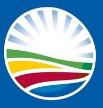Failed ANC not dealing with human trafficking
Note to editors: The following remarks were made by the Deputy Federal Leader of the Democratic Alliance Women’s Network, Safiyia Stanfley, at the launch of a campaign against trafficking in persons held in Kuruman today. She was joined by the constituency heads for the region, adv. Boitumelo Babuseng and Melinda Hattingh, as well as various DA councillors and activists from the Gamagara and Ga-Segonyana Local Municipalities.
Find attached a soundbite in English, and a photo here.
Human trafficking is an unspeakable crime. It robs them of their freedom and of their future. And it also causes untold heartbreak – not only for the victims, but also their loved ones.
South Africa in general has consistently been identified as a source country, a country of transit and a country of destination for human traffickers. So many people are trafficked within South Africa from different provinces, but are also trafficked from other countries through or into South Africa. Innocent and vulnerable women and children have been exploited and forced into domestic slavery, farm labour and sexual exploitation. It seems that especially young women and teenaged girls are targeted by human traffickers.
It is hard to give exact statistics on the prevalence of human trafficking, because there is no systematic collection or analysis of data on trafficking in persons and the smuggling of migrants in South Africa. But, just in this month, courts all over the country heard at least five shocking cases relating to human trafficking.
The South Gauteng High Court in Pretoria is dealing with human traffickers who forced victims as young as thirteen and fourteen years old into prostitution. The Durban Magistrate’s Court is handling a matter relating to the disappearance of a nine year old boy, Miguel Louw. In the Port Elizabeth High Court, a Nigerian pastor and two other men are accused of trafficking more than 30 victims to KwaZulu-Natal. And in the Witbank Magistrate’s Court, three men are accused of the kidnapping and murder of two young children from their home in Mpumalanga. One of the victims, a teenaged girl, had albinism and her body was found with some of its parts missing.
It is clear that much more must be done to fight human trafficking.
Two years ago, the Hawks identified Kuruman as a hotspot for human trafficking which is why the campaign against human trafficking was launched here today.
But other areas of the province are also affected.
In April this year, the South Gauteng High Court in Johannesburg convicted two men on eight charges relating to trafficking in persons, kidnapping and rape. These men had trafficked at least four young women from Upington. One of the victims was 19 years old at the time. She was offered employment in Gauteng, but when she arrived, she was forced to participate in pornography and prostitution. She was also forced to use crystal meth, or tik, which is one of the most harmful and dangerous substances. This young lady reached out to her adoptive mother in the South African Police Services (SAPS) and once she was rescued, she was brave enough to testify against the men. Her testimony helped to bring them to justice and, earlier this month, these men were sentenced to life in prison for their reprehensible crimes.
In the judgement in April, the judge emphasised that a desire to escape from unemployment and poverty in the Northern Cape had made the offer of employment in Gauteng seem very tempting. Everyone is aware of how hard it can be to find jobs in Kuruman, especially for our young people. And when you don’t have a job, it is difficult to afford school fees or to keep a roof over your head or to put food on the table for your family. In fact, according to StatsSA, more than 40% of the households in this municipality run out of money to buy food every month – which shows the impact of high unemployment.
Economic factors seem to be a common thread in cases of human trafficking affecting the Northern Cape, as the majority of cases seem to be instances where victims are lured away from their homes with offers of employment elsewhere. In another recent case, young men were trafficked from the Northern Cape to the Western Cape with the offer of employment. The father of one of the victims said that the family had hoped that the offer would be a great opportunity for his son.
But human trafficking can happen in every community, as access to technology makes our young people vulnerable to the lure of online predators.
What can we, as the Democratic Alliance, do to fight this scourge?
A DA-led government would combat human trafficking by professionalising the South African Police Service, through training and sufficient equipment. We need SAPS to be empowered to protect our women and our children from human traffickers.
Secondly, we need to secure the Northern Cape borders with the to ensure the legal movement of people.
We will also create and fund public shelters for victims of human trafficking and implement programmes to empower victims of human trafficking with skills that can lead to economic independence.
Only change under a DA-led government can ensure that people are better protected from predators who make money off the exploitation of others. You have made a great contribution by being here today, by signing our petition, and by showing SAPS that we are serious about the fight against human trafficking. Now you need to go out into the community and encourage your friends and family to vote for us, so that we can implement these mechanisms for the greater safety of our communities after 2019. It is only the DA that can bring the change that is needed.
Statement issued by Safiyia Stanfley, Deputy Federal Leader of the Democratic Alliance Women’s Network, 24 August 2018

